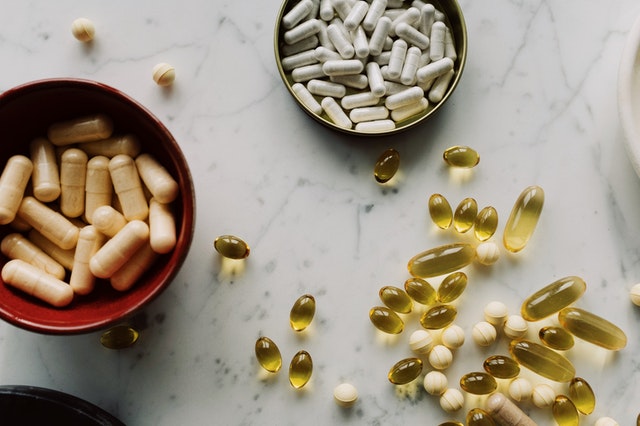The medical community is constantly moving forward in an effort to provide more effective treatment for recognized conditions. Sadly, even with the progress that has been made, ADD/ADHD medications frequently do not provide complete resolution of the condition or its symptoms without some sort of drawback. For this reason, many have turned to supplementation with various vitamins, minerals, and other substances to further support their neurological wellness. The following substances are some of the best supplemental options to improve neurological function and reduce symptoms of ADD/ADHD.
Omega-3 Fatty Acids
Studies show that people with ADHD are frequently deficient or have depressed levels of DHA when compared to those without an attention disorder. Perhaps this is why long-chain omega-3s in the form of EPA and DHA are so beneficial regarding ADD/ADHD support. Resolving an omega-3 deficiency can help restore neurological function and limit ADD/ADHD-related symptoms including behavioral disruptions, reduced cognitive ability, and inattentiveness.
Many people, especially those with ADHD, find it difficult to get enough omega-3 from diet alone. Because of this, supplementing with a product like HoltraCeuticals’ Ultra Omega may be hugely beneficial or even necessary in limiting your ADD/ADHD symptoms. Ultra Omega provides essential fatty acids in the form of EPA and DHA while also boasting an exceptional absorption rate. This means that Ultra Omega is more effective than many fish oils and other omega-3 supplements.
Protein
Protein is critical for the production of neurotransmitters. Neurotransmitters allow for effective communication within the brain and helps regulate and maintain important neurological functions such as attentiveness and focus. Those with ADD/ADHD, especially children, frequently do not acquire enough protein through their diet, which limits neurotransmitter prevalence and exacerbates symptoms.
One way to improve intake of protein is through supplementation. Protein powders can be incorporated in beverages such as smoothies or nutrient-dense shakes to boost protein levels. Ideally, the chosen supplement is low in sugar and does not contain artificial dyes, flavors, or preservatives as these substances can promote symptoms of ADD/ADHD. Protein powders may be sourced from soy, whey, casein, or other forms of natural protein. Depending on individual patient sensitivities or bodily needs, one type may provide greater benefits than another.
Essential Minerals
Essential nutrients including calcium, magnesium, and zinc play an important role in proper neurological function. These substances are utilized in the production and regulation of neurotransmitters. Deficiency of these minerals can lead to neurological disruption that promotes the development of ADD/ADHD and worsening of symptoms. Each substance has a unique impact on ADD/ADHD symptoms.
Calcium is used in various areas throughout the body including the heart and other muscles. This mineral also plays an important role in nerve signaling and transmission. These functions help the brain convey information to muscles throughout the body. Deficiency may cause spasms, confusion, and forgetfulness.
Magnesium acts as an emotional regulator and helps calm the brain. This helps reduce symptoms of ADD/ADHD while also improving sleep quality. Deficiency of magnesium can cause irritability, reduced attention span, and difficulty thinking clearly.
Zinc synthesizes dopamine and influences the efficacy of it and other neurotransmitters. Deficiency in zinc frequently results in inattentiveness and general worsening of ADD/ADHD symptoms.
Utilizing a multimineral supplement such as HoltraCeuticals’ Chelated Multimin can help maintain appropriate balance of these critical minerals. Resolving a deficiency of calcium, magnesium, zinc, or other essential mineral can significantly improve ADD/ADHD symptoms.
Iron
Decreased levels of iron can lead to reduced prevalence of essential neurotransmitters including dopamine and norepinephrine. Unfortunately, it seems that iron deficiency is common among ADD/ADHD patients. Studies suggest that it is far more likely for children with ADHD to have a deficiency of ferritin, which correlates to depressed iron stores in the body, than children without an attention disorder. Furthermore, a 2012 study found that iron deficiency likely increases the risk of developing neurological disorders such as ADD/ADHD in children and young adults.
Supplementation with iron can help restore proper neurotransmitter production, protect against neurological disruption, and ease ADD/ADHD symptoms. Iron Essentials is a formulation of chelated iron produced by HoltraCeuticals that can improve iron levels in ADD/ADHD patients. However, it is important to supplement safely because over-consumption of iron may lead to toxicity. It is always recommended to speak with a physician prior to supplementing with iron.
B Vitamins
Studies have shown that children with ADHD may require additional B vitamins, specifically B6, in order to maintain production of specific neurotransmitters such as serotonin. In addition to supporting neurological function, serotonin helps regulate mood and improves one’s sense of well-being. Because of its positive impact on serotonin levels, B-complex multivitamins are frequently prescribed to ADD/ADHD patients.
Rhodiola Rosea
Certain herbs may be beneficial in treating neurological disorders such as ADD/ADHD. Rhodiola Rosea is an adaptogenic herb, which means it aids in the normalization and balancing of multiple substances as well as various bodily processes. A 2010 study showed that, among other benefits, Rhodiola Rosea has neuroprotective properties. Supplementing with Rhodiola Rosea can prove to be greatly beneficial in treating ADD/ADHD. Results of supplementation often include improved alertness, attention, and recollection.
It is important to note that Rhodiola Rosea may be too strong for young children. However, some practitioners recommend Rhodiola Rosea to ADD/ADHD patients in junior high, high school, and college as focus is often a primary concern. Regardless of intention, supplementation should be commenced at a low dose to assess responsivity before a greater dose is attempted.
Using Supplements to Alleviate ADD/ADHD
ADD/ADHD involves many different aspects of neurological function. Deficiency of various substances can contribute to greater disruption and worsening of symptoms. By optimizing the levels of various vitamins and minerals through the use of supplements, one may be able to better balance essential neurological nutrients and function thereby reducing ADD/ADHD symptoms. As with all supplements, be sure to consult a physician prior to medicating.





